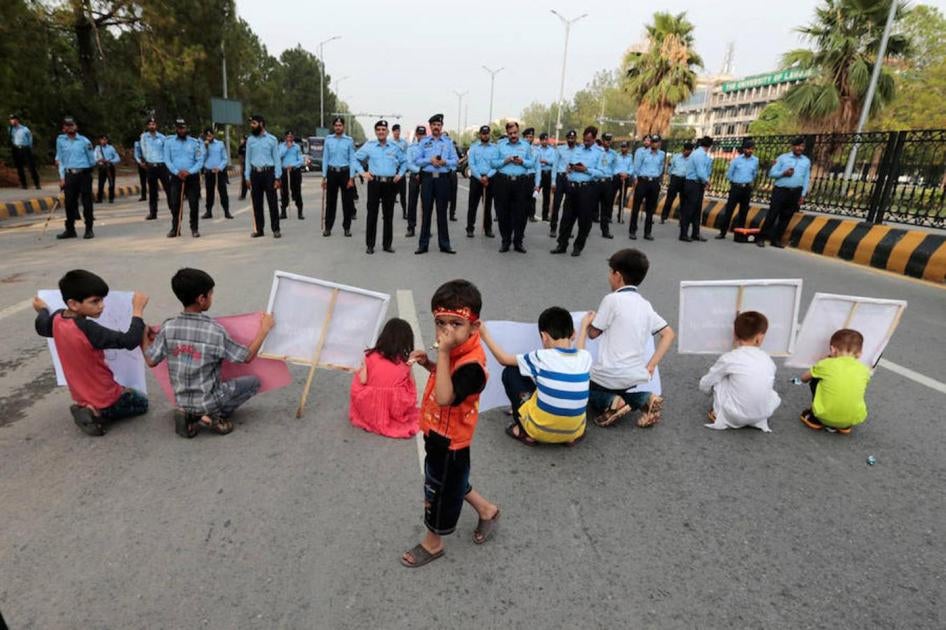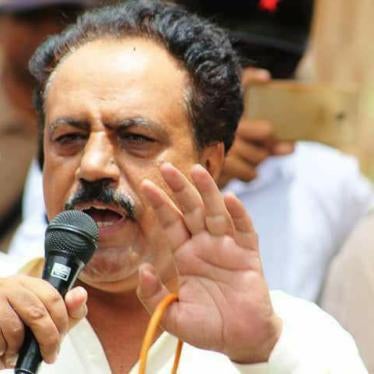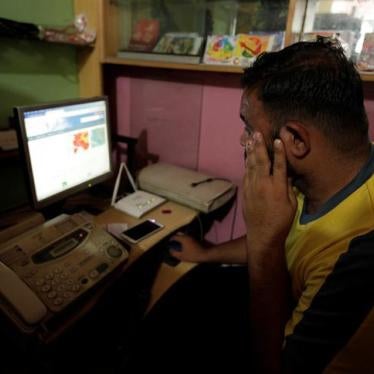(New York) – Pakistan’s government claimed national security to clamp down on critical voices and human rights activists in 2017, Human Rights Watch said today in its World Report 2018. Militant Islamist groups with suspected political support engaged in violent attacks against vulnerable minorities.
In the 643-page World Report, its 28th edition, Human Rights Watch reviews human rights practices in more than 90 countries. In his introductory essay, Executive Director Kenneth Roth writes that political leaders willing to stand up for human rights principles showed that it is possible to limit authoritarian populist agendas. When combined with mobilized publics and effective multilateral actors, these leaders demonstrated that the rise of anti-rights governments is not inevitable.
“Pakistani authorities responded to the country’s serious human rights problems by punishing the messenger, putting dissenting voices at greater risk in an already toxic environment,” said Brad Adams, Asia director. “Instead of muzzling dissent, the government needs to focus on prosecuting those responsible for abuses.”
In 2017, the government used the Policy for Regulation of International Nongovernmental Organizations (INGOs) in Pakistan to refuse registration and impede functioning of INGOs, including humanitarian and human rights groups. In January, security forces abducted five vocal critics of militant Islamist groups and Pakistan’s security establishment. Four were released after three weeks of public protests, while one remained forcibly disappeared.
In August, plainclothes men accompanied by police officials picked up four activists in Sindh province. In December, Raza Khan, a social activist, went missing after attending a public discussion in Lahore on recent protests by militant groups.
In 2017, Pakistan witnessed further blasphemy-related violence while the government continued to encourage targeted prosecutions and other forms of discrimination against vulnerable minority groups. The government did not repeal discriminatory laws, and officials used religious rhetoric threatening minority groups. Provisions of Pakistan’s penal code that perpetuate discrimination against members of the Ahmadiyya religious community remained unchanged.
Women, religious minorities, and transgender people faced violent attacks, discrimination, and government persecution. Violence against women and girls – including rape, “honor” killings, acid attacks, domestic violence, and forced marriage – remained a serious problem. Pakistani activists estimate that there are as many as a thousand “honor” killings every year.
“Pakistan’s security forces remained unaccountable for human rights violations and exercised disproportionate political influence over civilian authorities,” Adams said. “For this to change, the government will need to reverse bad laws and policies and demonstrate a genuine commitment to the rule of law and equal justice.”










